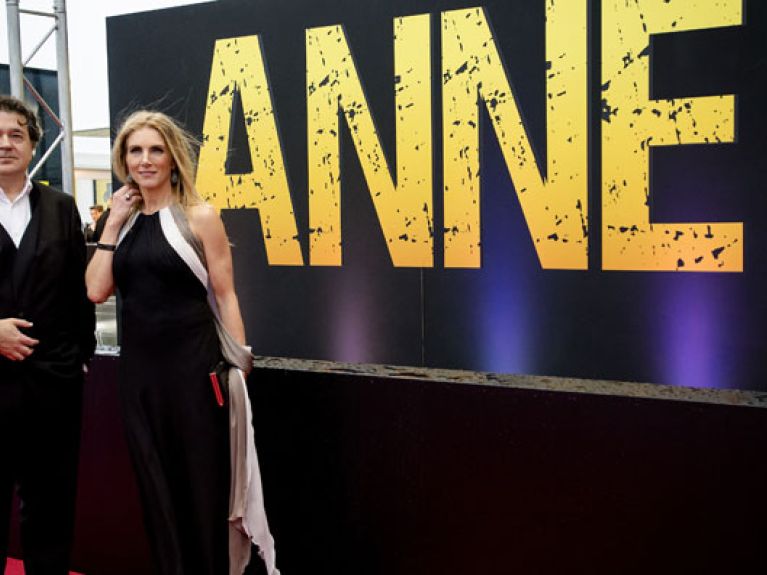The life of Anne Frank
A stage play is casting new light on the life of the German Jewish girl Anne Frank, who became a victim of the Holocaust.

A colossal glass palace, state-of-the-art stage technology and 20 actors between constantly rotating elements: This how the director Theu Boermans is re-enacting the world of the Jewish girl Anne Frank, who was killed by the Nazis. The audience is drawn into 1940-1944 Amsterdam, into the rear building on Prinsengracht, where the Frank family from Frankfurt/Main lived in hiding for more than two years. On Boermans’ stage the reconstruction opens up like a doll’s house. At the same time the Second World War is taking place on giant screens. When the projection curtain is raised there is a view of a restaurant in post-War Paris. Here Anne meets a boy, with whom she was in love before she went into hiding. She tells him her story. The choice of time for staging the production is by no means coincidental: In 2014 Anne Frank would have turned 85.
A lively, thoughtful teenager
It is the fictional subplot in Paris that makes “Anne” different from previous productions. Responsible for this artistic device are the best-selling Dutch authors Jessica Durlacher and Leon de Winter, who were commissioned to write the play by the Anne Frank Fonds set up in Basel by Anne Frank’s father. They wanted to stage the life Anne Frank did not live, and to this end used Anne’s “Collected Works”, which were published in autumn 2013, in addition to the diary. A new focus highlights the dreams and wishes for the future of the lively and yet thoughtful teenager, who is played by 27-year-old Rosa da Silva.
The two producers, Kees Abrahams and Broadway old-hand Robin de Levita, would like to appeal to a new generation of youngsters. But can one package Anne’s fate in an entertaining multimedia show? In the run-up critics complained that it was being marketed. In particular the Anne Frank Foundation in Amsterdam, which runs the museum in the rear building, saw in it the impermissible commercialisation of history. On the other hand Yves Kugelmann, a board member of the Basel-based Fonds, insisted that the evening served educational purposes.
The controversy did not, however, spoil the premiere in May 2014: The audience, which included Anne Frank’s cousin Buddy Elias and her school friend Jacqueline Van Maarsen, loved it, and the critics were kind.
Anne Frank was born on 12 June 1929 in Frankfurt/Main.